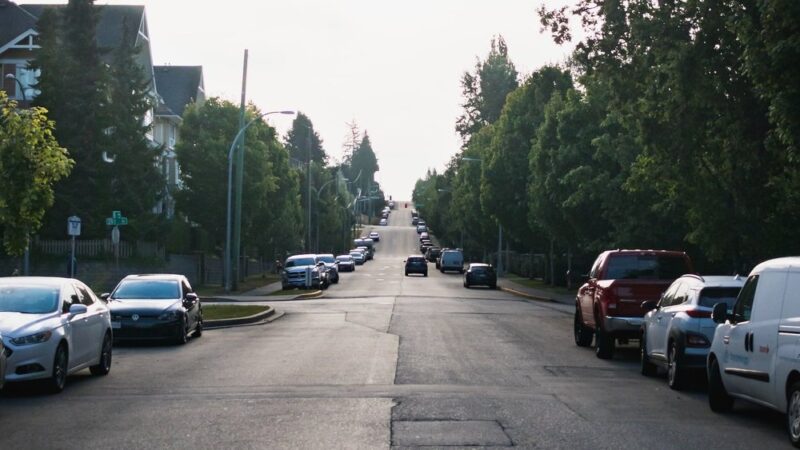Part of having transparent local accounting is ensuring that the people living in a community know and understand the public costs associated with their homes, their businesses, or their other property investments.
This article was written by Charles Marohn and originally published by Strong T0wns.
At Strong Towns, we’ve never been opposed to taxation or to governments that charge fees for services like water, sewer, or electricity. To function over the long term, local governments must have revenues that exceed their expenses (in accounting terms, this is called “profit”). Local government is the way we collaborate in a place but, just because the role of local government is to serve the community, that does not remove the constraint of needing to have profit. They must run a surplus.
Ignore that constraint, and bad things happen. Places fall apart. Calls for help are unanswered. People suffer.
What we have always called for at Strong Towns is accounting practices that clearly reveal and explain the full, long-term costs of the decisions we make. If we are going to build a mile of new road, extend a pipe to a new subdivision, or annex property into the city, what are the real financial implications of that transaction? And not just the money we get, but what is the cost of the liability we take on?
Cities don’t answer these questions, and standard accounting practices don’t prompt them to, and so local leaders routinely find themselves over-committed and under-resourced, especially a couple of decades after they’ve experienced a growth spurt and those liabilities—all those miles of road, street, sidewalk, and pipe—are now in need of maintenance. When this happens, cities frequently turn to the assessment process.
Illegally assessing for routine maintenance is the most common way that residents experience a lack of transparent local accounting. A property owner will pay taxes and fees for decades, believing that they are paying, in part, for the maintenance of the community’s essential infrastructure. They have the impression that, when the street in front of their home needs repairs, the city will fix it. This is a reasonable expectation because this is how things are supposed to happen.
It’s not how things happen, however.
In the Growth Ponzi Scheme, local governments receive an increase in revenue with new growth and development, but they also take on the long-term liability of providing service and maintenance. The revenue flows in immediately, helping with the current budget cycle; the liabilities come due years, sometimes decades, later.
When cities don’t account for this tradeoff—and standard local government accounting practices do not—cities improve their budget today by becoming increasingly insolvent in the future. Seventy years into this development experiment and our cities are overwhelmed with liabilities they can’t meet, promises past leaders made that current leaders can’t make good on.
Thus the direct assessment for maintenance, the illegal way cities extort money from property owners. A direct assessment is a charge the municipality levies on a specific property as part of a project. To be legal, the project must increase the value of the property by at least as much as the amount being assessed. If you’d like to know more, I wrote an article earlier this year about a judge’s decision declaring that St. Paul’s direct assessment program is illegal. That article explains a lot of the nuances of direct assessments that I won’t repeat here.
Two recent articles out of Minnesota (my home state) highlight the ongoing problems with direct assessments, but also the significant changes some cities have made to be more transparent (and legal).
In an October 23 article titled “Minnesota street projects often are funded by hefty assessments. But is that fair or legal?” the Star Tribune explores assessments in St. Cloud, Minnesota, starting with a story of two properties, one where the property owner didn’t fight their assessment and the other who had the wherewithal and resources to appeal to district court. The former paid the full amount while the latter received a $10,000 deduction in their assessment.
This mirrors the inequities we have documented in the property tax system, where the affluent and well-connected appeal—or threaten to appeal—their taxes and end up paying far less than the much poorer people who lack the means to credibly make a similar threat. From the Star Tribune:
“I don’t think the burden should be on the resident to know the back-channel law and have to fight it,” said Jason Theisen, a St. Cloud resident who fought his $16,500 assessment for a 2018 road project. “I think [the city] should just be following what the law is.”
The article documents a number of Minnesota cities who have been burned by appeals and have now reformed their approach. Duluth, Rochester, Edina, and Northfield have all moved away from illegal assessments for routine maintenance, adopting a different system of taxes and fees to cover their costs.
Even though Duluth’s city engineer was quoted as saying, “We haven’t given up the ability to assess. We’re choosing not to at this time,” I don’t think they can go back. The way to successfully fight these illegal assessments is through a class action lawsuit and, as the Star Tribune reports, those are becoming more common as the amount cities need to collect is becoming more bizarre.
Local government officials may lament the loss of this tool, but they shouldn’t. They should use this as an opportunity to increase the transparency of their accounting practices. They should fully account for maintenance when they take on new liabilities and do a real benefit-cost analysis when they undertake new projects. They should report on their accrued liabilities and maintenance backlog as part of their annual budget and stop pretending that a balanced budget, a low tax rate, or a high bond rating is a sign of good financial management.
That memo hasn’t reached Baxter, Minnesota, the city next door to mine. Once called “the classic case” of success by transportation spending advocates, Baxter is deep into the second life cycle of the Growth Ponzi Scheme and, thus, is struggling to keep things afloat. The latest is an attempt to assess a routine maintenance project over the objections of the residents.
Assessments for the project are running between $8,000 and $18,000, well above the amount where a single appeal makes financial sense. Some property owners even report having prior assessments on the same property they are still paying off. If a group of these property owners got together and hired the same attorney, they would kill this project.
Of course, then their road will fall apart, and that’s the underlying problem. Even though tax rates are relatively high, the properties don’t generate revenue to pay for the maintenance of their own road, let along all the collector and arterials roads the city has obsessively built over the years (including my favorite stroad to nowhere, which I think it approaching 15 years in place without any development).
And this is where the city is stuck. They have an insolvent development model, and their residents expect more services than they are willing to pay for—more than their tax base can support. Instead of reckoning with that fact, instead of changing their approach, they convince themselves that they can do something illegal (direct assess for maintenance), because that is more responsible than letting their roads fall apart.
If you buy a home, you should know that you will have to eventually pay an assessment for road maintenance, or so city officials tell themselves. They tell themselves this because they know it; they know that they are screwed without illegal assessments. They know it because they live it day in and day out, but their residents don’t.
Residents expect the city to act prudently with their finances. They expect to pay their taxes and have their infrastructure maintained. They expect local government accounting practices to reflect the reality of accrued liabilities, not hide them and pretend they are a problem people in the future will figure out.
That’s what we all expect, but it won’t happen until we get transparent local accounting.





